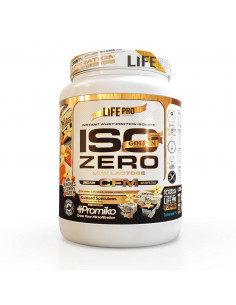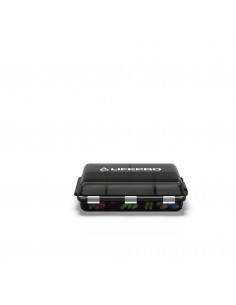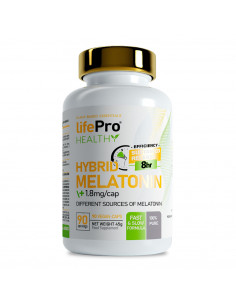You may also like
What is ashwagandha?
AshwagandhaAshwagandha is a supplement that comes from the roots of a plant called Withania Somnifera, traditional and commonly used in India since historical times, more than 3000 years ago as a natural medicinal remedy.
The ashwagandha is responsible for acting on an essential part of the endocrine system, exactly on the HHA axis (Hypophyseal-Hypothalamic-Adrenal). It does not present a specific response in the organism: it should be able to improve tolerance to any stressor whether physical, chemical or biological
The ashwagandha is a supplement increasingly used and demanded in the general population due to its long list of properties and health benefits, mainly cortisol reduction.
The cortisol is a hormone naturally secreted by our body when we are under stressful situations.
Benefits of ashwagandha
- Improves the immune system: its free radical scavenging properties reduce oxidative stress (antioxidant properties against free radicals).
- In men, it helps to increase testosterone levels to a greater or lesser extent depending on the previous state of the person.
- It has potential effects on cognitive ability and memory.
- There are pathologies that are treated with withanólidos, so it is considered that its use can be beneficial to treat diseases such as parkinson and alzheimer.
- The ashwagandha contains neurotransmitters that activate serotonin receptors.
- It contributes to improving the quality of sleep, decreasing nervousness, and to achieve a sense of well-being.
- Helps controlling blood sugar. It regulates blood sugar.
- It has a great capacity anti-inflammatory: it has proven effective in treating arthritis.
- It improves the state of our thyroid, endocrine function.
- It contains a compound called Withaferin A effective against different types of tumor cells. It is not recommended for use as a primary cancer therapy. Consult with a medical professional.
What side effects does ashwagandha have?
- In case of hypertension, consult a medical professional, as it may lower blood pressure or interfere with medications used to treat this pathology.
- If the person suffers from hormonal problems or thyroid, prior consultation with a doctor is recommended, as it can alter different levels of hormones, in particular the H. Thyroid.
- In case of pregnancy or breastfeeding its use is not recommended without medical supervision.
- In case of consuming any medication to control diabetes, it is recommended to consult a medical professional before use. It can interact and interfere with this type of medication, since it reduces blood sugar levels.
What dosage of ashwagandha to take?
The recommended dosage varies depending on the individual, between 200 and 600 milligrams per day. It can be taken in several doses throughout the day or in a single dose.
Contenido
























